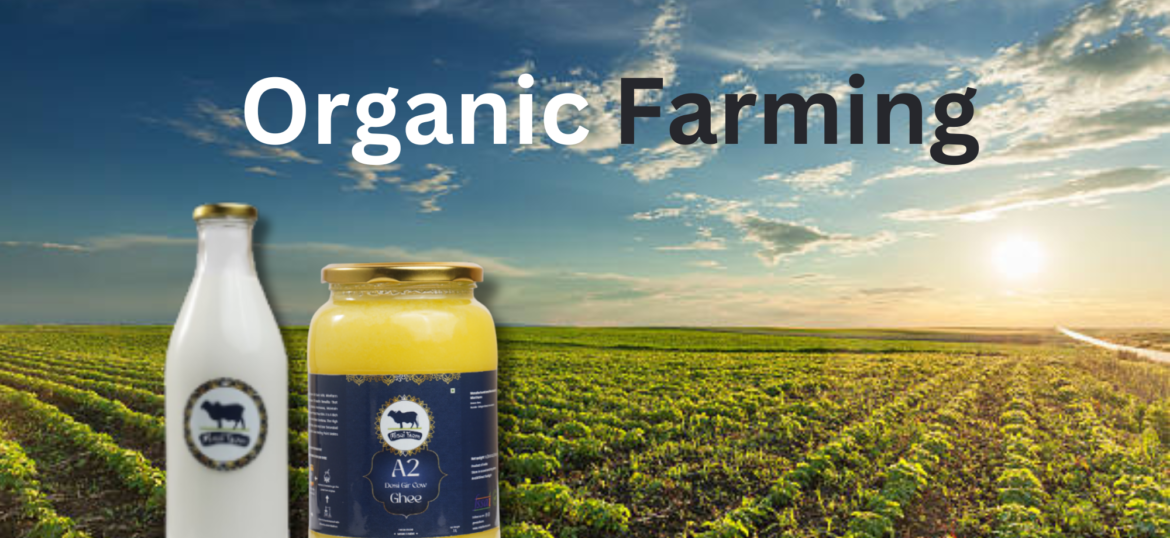In recent years, there has been a significant shift in consumer preferences towards healthier, more sustainable food options. This trend has moved the growth of the organic dairy farming industry. With increasing concerns about the environment, animal welfare, and personal health, consumers seek organic dairy products as a healthier and more ethical choice. In this blog post, we’ll explore the dairy market trends driving the demand for organic dairy products and search into what makes organic dairy farming a sustainable and lucrative business venture.
Growing Market Trends
The market for organic dairy products has experienced remarkable growth in recent years, fueled by changing consumer preferences and increased awareness of the benefits of organic farming practices. According to the IMARC Group, The organic dairy market is projected to reach US$44.4 Billion by 2032, with a 6.1% CAGR during 2024-2032. Factors driving growth include consumer health awareness, sustainability, regulatory support, retail availability, and rising disposable income.
One of the key drivers of this growth is the rising consumer demand for products free from synthetic hormones, antibiotics, and pesticides. Organic dairy farming prohibits the use of these harmful chemicals, making organic dairy products a safer and healthier option for consumers.
Moreover, consumers care more about how animals are treated and if farming is done in a way that’s good for the environment. Organic dairy farms follow rules to make sure animals have space to roam and are not kept in small spaces. This makes consumers happy because they want farming to be kind to animals and the planet.
Health-conscious consumers are also driving the demand for organic dairy products due to their perceived health benefits. Organic milk, cheese, and yogurt are often endorsed as being higher in beneficial nutrients such as omega-3 fatty acids and antioxidants and lower in harmful substances like saturated fats and cholesterol. As a result, consumers are willing to pay a premium for organic dairy products as they perceive them to be healthier alternatives to regular options.
Sustainable Farming Practices
Organic dairy farming is characterized by its focus on sustainability and environmental stewardship. Unlike ordinary dairy farming, which relies heavily on synthetic fertilizers and pesticides, organic dairy farms utilize natural methods to promote soil health and fertility. These methods include crop rotation, composting, and the use of organic fertilizers and pesticides derived from natural sources.
Additionally, organic dairy farms prioritize biodiversity and habitat conservation by preserving natural ecosystems and minimizing the use of chemicals that can harm wildlife. By adopting these sustainable farming practices, organic dairy farms play a crucial role in reducing the environmental impact of agriculture and promoting long-term ecological resilience.
Furthermore, organic dairy farming promotes animal welfare and the kind-hearted treatment of livestock. Organic dairy cows are required to have access to grazing and outdoor exercise areas, allowing them to engage in natural behaviors and maintain optimal health. This focus on animal welfare not only aligns with consumer values but also contributes to the overall quality of organic dairy products.
Challenges and Opportunities
While the organic dairy industry presents money-making opportunities for farmers, it also poses unique challenges. One of the primary challenges is the higher cost of organic production, which can be attributed to the expenses associated with organic feed, certification, and compliance with organic standards. As a result, organic dairy products often command higher prices at the retail level, which can limit their accessibility to some consumers.
Moreover, organic dairy farmers may face restriction in terms of land availability and access to organic feed sources. Transitioning from conventional to organic dairy farming requires a significant investment of time and resources, as farmers must undergo a three-year transition period during which they must stick to organic practices without cutting the benefits of organic certification.
However, despite these challenges, there are many opportunities for organic dairy farmers to thrive in the market. As consumer demand for organic dairy products continues to rise, farmers who hold organic practices stand to benefit from premium pricing and increased market share. Additionally, government initiatives and subsidies aimed at promoting organic agriculture can provide support to farmers making the transition to organic dairy farming.
Misri Farm Organic Products
Misri Farm is an organic farm that specializes in providing organic products like A2 Gir cow milk and A2 Gir cow ghee. As an organic dairy farm, Misri Farm follows strict standards to ensure the highest quality of its products.
A2 Gir cow milk is a special type of milk known for its health benefits. It contains A2 beta-casein protein, which is easier to digest compared to the A1 protein found in regular milk. This makes it a popular choice among consumers in Ahmedabad looking for healthier alternatives.
Organic dairy products are produced without the use of synthetic hormones, antibiotics, or pesticides. This means that consumers can enjoy these products with the assurance that they are free from harmful chemicals.
With the growing demand for organic dairy products, it is well-positioned to capitalize on dairy market trends. By providing high-quality organic dairy products, it contributes to the sustainability of organic agriculture and meets the needs of health-conscious consumers. As the organic dairy market continues to expand, it remains committed to delivering premium organic products that promote health, sustainability, and ethical farming practices.
Conclusion
In conclusion, the organic dairy industry is experiencing unmatched growth driven by changing consumer preferences and increasing awareness of the benefits of organic farming practices. With consumers prioritizing health, sustainability, and animal welfare, organic dairy products have emerged as a possible alternative to regular options. By holding sustainable farming practices and meeting the growing demand for organic dairy products, farmers have the opportunity to capitalize on this trend and contribute to a more sustainable and ethical food system.




